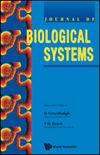具有参数可识别性的肿瘤模型的树突状细胞疫苗优化治疗策略
IF 1.3
4区 数学
Q3 BIOLOGY
引用次数: 2
摘要
免疫疗法已成为癌症治疗中一种快速发展的方法。癌症免疫疗法旨在促进免疫系统对肿瘤的反应。有鉴于此,我们开发了一个免疫-肿瘤与免疫治疗药物相互作用的数学模型,以及最佳治疗策略。肿瘤免疫动力学由五个耦合的非线性常微分方程组给出,该方程组表示肿瘤特异性CD4+T细胞、肿瘤特异性CD8+T细胞,肿瘤细胞、树突状细胞和免疫刺激细胞因子白细胞介素-2(IL-2)之间的相互作用,通过添加描述树突细胞疫苗接种应用的控制功能来扩展。从分析和数值的角度研究了系统的动力学行为。主要目的是研究将树突状细胞疫苗接种的肿瘤细胞负担和毒性降至最低的治疗方案。我们的数值模拟表明,使用树突状细胞疫苗接种的最佳治疗策略降低了肿瘤细胞负担,并增加了CD4+T细胞、CD8+T细胞,树突状细胞和IL-2的细胞计数。通过采用全局灵敏度分析的方法来确定对肿瘤细胞具有显著影响的最具影响力的参数。本文章由计算机程序翻译,如有差异,请以英文原文为准。
OPTIMAL TREATMENT STRATEGIES USING DENDRITIC CELL VACCINATION FOR A TUMOR MODEL WITH PARAMETER IDENTIFIABILITY
Immunotherapy has become a rapidly developing approach in the treatment of cancer. Cancer immunotherapy aims at promoting the immune system response to react against the tumor. In view of this, we develop a mathematical model for immune–tumor interplays with immunotherapeutic drug, and strategies for optimally administering treatment. The tumor–immune dynamics are given by a system of five coupled nonlinear ordinary differential equations which represent the interaction among tumor-specific CD4+T cells, tumor-specific CD8+T cells, tumor cells, dendritic cells and the immuno-stimulatory cytokine interleukin-2 (IL-2), extended through the addition of a control function describing the application of a dendritic cell vaccination. Dynamical behavior of the system is studied from the analytical as well as numerical points of view. The main aim is to investigate the treatment regimens which minimize the tumor cell burden and the toxicity of dendritic cell vaccination. Our numerical simulations demonstrate that the optimal treatment strategies using dendritic cell vaccination reduce the tumor cell burden and increase the cell count of CD4+T cells, CD8+T cells, dendritic cells and IL-2. The most influential parameters having significant impacts on the tumor cells are identified by employing the approach of global sensitivity analysis.
求助全文
通过发布文献求助,成功后即可免费获取论文全文。
去求助
来源期刊
CiteScore
2.80
自引率
12.50%
发文量
31
审稿时长
1 months
期刊介绍:
The Journal of Biological Systems is published quarterly. The goal of the Journal is to promote interdisciplinary approaches in Biology and in Medicine, and the study of biological situations with a variety of tools, including mathematical and general systems methods. The Journal solicits original research papers and survey articles in areas that include (but are not limited to):
Complex systems studies; isomorphies; nonlinear dynamics; entropy; mathematical tools and systems theories with applications in Biology and Medicine.
Interdisciplinary approaches in Biology and Medicine; transfer of methods from one discipline to another; integration of biological levels, from atomic to molecular, macromolecular, cellular, and organic levels; animal biology; plant biology.
Environmental studies; relationships between individuals, populations, communities and ecosystems; bioeconomics, management of renewable resources; hierarchy theory; integration of spatial and time scales.
Evolutionary biology; co-evolutions; genetics and evolution; branching processes and phyllotaxis.
Medical systems; physiology; cardiac modeling; computer models in Medicine; cancer research; epidemiology.
Numerical simulations and computations; numerical study and analysis of biological data.
Epistemology; history of science.
The journal will also publish book reviews.

 求助内容:
求助内容: 应助结果提醒方式:
应助结果提醒方式:


